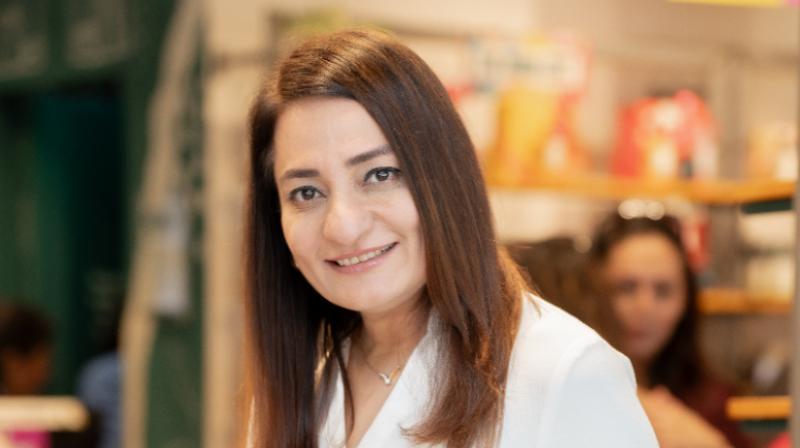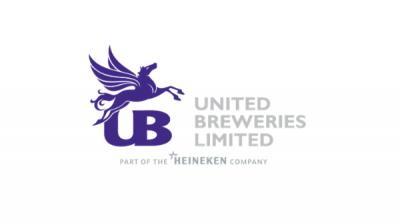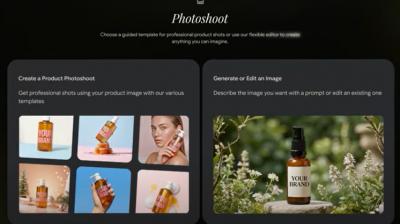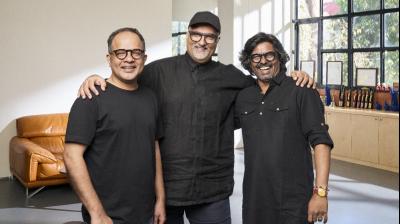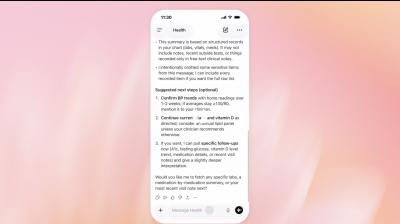In April 2025, The Body Shop India announced a recalibration of its pricing strategy, cutting down the cost of a few of its products by at least 28-30%.
To highlight the move, the brand also rolled out a campaign, ‘More Love for Less’, consisting of an ad film.
Through the initiative, The Body Shop aims to cater to every customer and make the brand more accessible. With over 200 touchpoints currently, the brand is also working to strengthen its presence in tier two and three cities.
To explore how the campaign has resonated with audiences, the brand's positioning in a crowded beauty market and more, we caught up with Harmeet Singh, chief brand officer, The Body Shop - Asia South.
Edited excerpts:
What inspired the 'More Love for Less' campaign? What was the core insight behind it?
We want to give more love to people. More love means more products, accessibility, affordability and joy to all our consumers, existing or new, so that when they come to our store, they get ‘more love, for less’.
'Less' is a little less price that makes them very happy, and they get more value out of their shopping.
We've recalibrated prices for about 60-plus best-selling products. What we understood about the consumers today, in terms of what they're looking for, is that there was a little bit of a price barrier that they had. People love The Body Shop but some found it to be a little pricey and a bit expensive. When we heard that, we wanted to create some entry price point products, which include the best-sellers like shower gel, body butter, body lotion, lip balms, and shampoos. We reduced the prices so that customers can come to us and shop for their day-to-day products. The business move was also to help us get new consumers, especially the younger generation who are about 18 to 25 years old, who aspire to buy our products, but don't have enough pocket money to invest in multiple products of The Body Shop.
This move will help the younger customers to come to our brand and enjoy the products. More importantly, we'll also be able to expand to other cities like the tier two and three towns where the consumers are very aware and hungry for good-quality brands, and The Body Shop is at the top of their minds. We also keep getting a lot of requests from customers to come to their cities. Now, to do all of this, recalibration of pricing is very important, which can help us enter the other cities and towns.
In a price-sensitive market like India, how are you ensuring that the new pricing narrative is seen as a value-add rather than a compromise on quality?
We have to ensure that our messaging is not misconstrued by our customers and they get it very right that we haven't reduced prices for all the products. We have almost 400 products in our portfolio, but we have reduced prices for only around 60. And this is not diluting any quality. The quality of the products is the same. We are known for the ethical, premium and quality ingredients, and The Body Shop stands for its organic quality and, very importantly, the brand values sustainable practices. That's what makes us very much loved and differentiated from other competitors. People who love and trust The Body Shop can come and see the product, it’s just the same. There's no difference in any quality.
How do you plan to measure the long-term impact of the campaign on the brand's reputation and customer loyalty?
The responses that have started coming in are extremely positive. In the campaign, we have shown the three age groups, from young to middle-aged. These people who are coming to the store are super excited to see their favourite products at great prices. So, for us, it’s very important that we give a clear message to our audience, and I believe it's well-received by our campaign in the video that we have done.
It definitely is a message to our competition that The Body Shop can still be an affordable luxury for our consumers. It is a luxurious product with no change in quality, and we have made it more affordable for our consumers.
How does the brand position itself in the crowded beauty and personal care space?
In the last three years, we have seen the emergence of literally 800 D2C beauty brands. We're very well aware of how the competition is growing in the beauty sector because it is one of the very promising and growing categories.
For us, the more competition, the better it is because we have a very strong foundation of five decades. The Body Shop started in 1976, and with a strong foundation, we stand by our values and the ethical practices of what we do, and the sourcing of our ingredients is worldwide. I don't think our quality can be matched.
We are happy to see that the competitors are picking up the best aspects from The Body Shop. For instance, we are the leaders in recycling plastic in the beauty space. We collaborated with Plastics for Change (PFC), which does recycling of plastics. We collaborated with them in 2019 as the first international Beauty player. Today, PFC, which is based in Bengaluru, has many other beauty brands and players who have collaborated for their plastic recycling. We're happy to lead the way, and the competition is following us because I think whatever good we do, whatever we are doing, we want the competition to spread more and more.
Talking about sustainability, The Body Shop was the pioneer in the space; however, now there is an array of beauty products that have sustainability as their core USP how are you approaching this?
Sustainability is our USP in any product, whether we're talking about a skincare product or a product with properties of glow. For instance, our vitamin C range is extremely popular and number one in our skin care. Whatever we talk about, we deliver. Very importantly, the customers are very sure of the quality and also the safety of our product. Like today, if you gift our product to anyone, they will not be scared of trying it out or applying. That is the trust the brand has built over the years.
These are, I would say, our very compelling USP and what we have built over the years with our premium quality and vegan ingredients. We are vegetarians, and all our ingredients are of very high quality. The customer trust is what is driving the growth of The Body Shop, from 200 touch points to going to be 300 in the next year. We are planning another 100 touch points growth of The Body Shop accessibility and approachability, and not only in the tier 2 or tier 3, but you will see a lot more expansion in different marketplaces and different partners where you'll be able to get the products. Today, Blinkit is our partner, so one can get their favourite Body Shop product within 10 minutes.
The Body Shop is strengthening its presence in tier-two and tier-three cities. How is the brand adapting to its marketing and communication efforts to these markets?
We kept it very simple. Our whole campaign is digital-first. It's very simple messaging with a 20-second video, which says this is my favourite product now at this price. So, we are communicating very clearly that the product, which was previously priced, has been slashed and is now available at this price. We also have influencers who are helping promote the brand. They are people who the younger consumer, Gen Z and even the middle-aged can resonate with these days. This is the era where the brand needs to work with influencers to spread the right message. We're very happy that we are on trend and are doing what consumers want to see. This campaign could not have been better if we wouldn't have approached it properly or in the right manner.
Can you elaborate on the role of social media influencers at The Body Shop and how the brand selects who it wants to partner with?
The Body Shop was never completely submerged in influencer marketing. A lot of other brands have capitalised on influencer marketing. We do take influencers, but in the last few years, we've been very choosy. We have a selective pool of influencers who resonate with our brand values, which are very clear that we want influencers who can promote the ethical practices, sustainability, messaging, and what we have, and they can promote and vouch for the quality and the organic ingredients that the brand has. In marketing, we are very careful with whom we associate. We are very happy that with this right selection we're able to reach our right consumers.
What communication approaches does the brand use to stand out and ensure its messaging is heard above the noise?
We look at 360-degree dissemination of our messaging, which means it's not only for one or two platforms. We are a retail-first brand, but we understand that digital evolution is at a high these days. We make digital-first content, and we are marketing this campaign on all the platforms, including Meta, YouTube, and Spotify. We also do mall branding. We have the right strategy and the right approach to the consumers, the existing and where we want to capture the new ones. Wherever they are, we want to be on those platforms.
What's the media mix for the brand? What marketing channels does the brand prioritise?
We do traditional media, depending on the requirements of a city. We do believe in doing traditional wherever it’s required, but more of our investments go into trend media right now.
In the recent past, we have seen print advertising making a comeback; is that a medium that The Body Shop will invest its marketing efforts in?
We are considering it!


